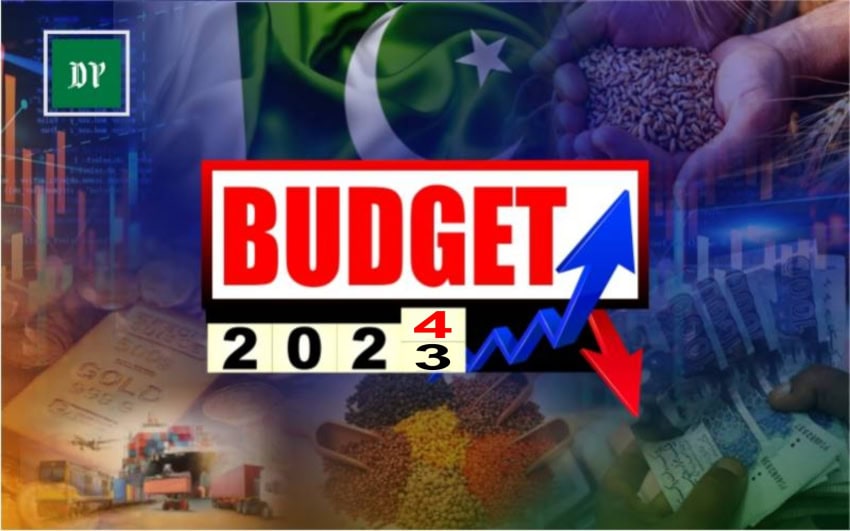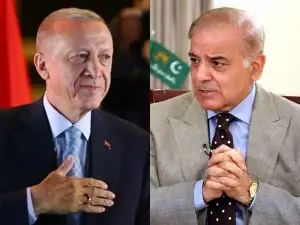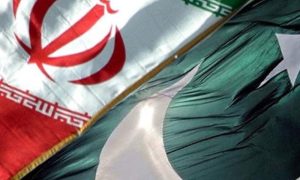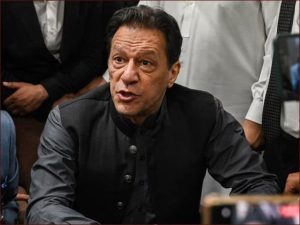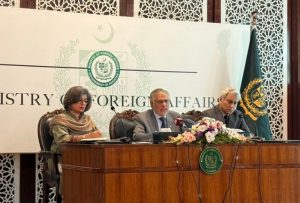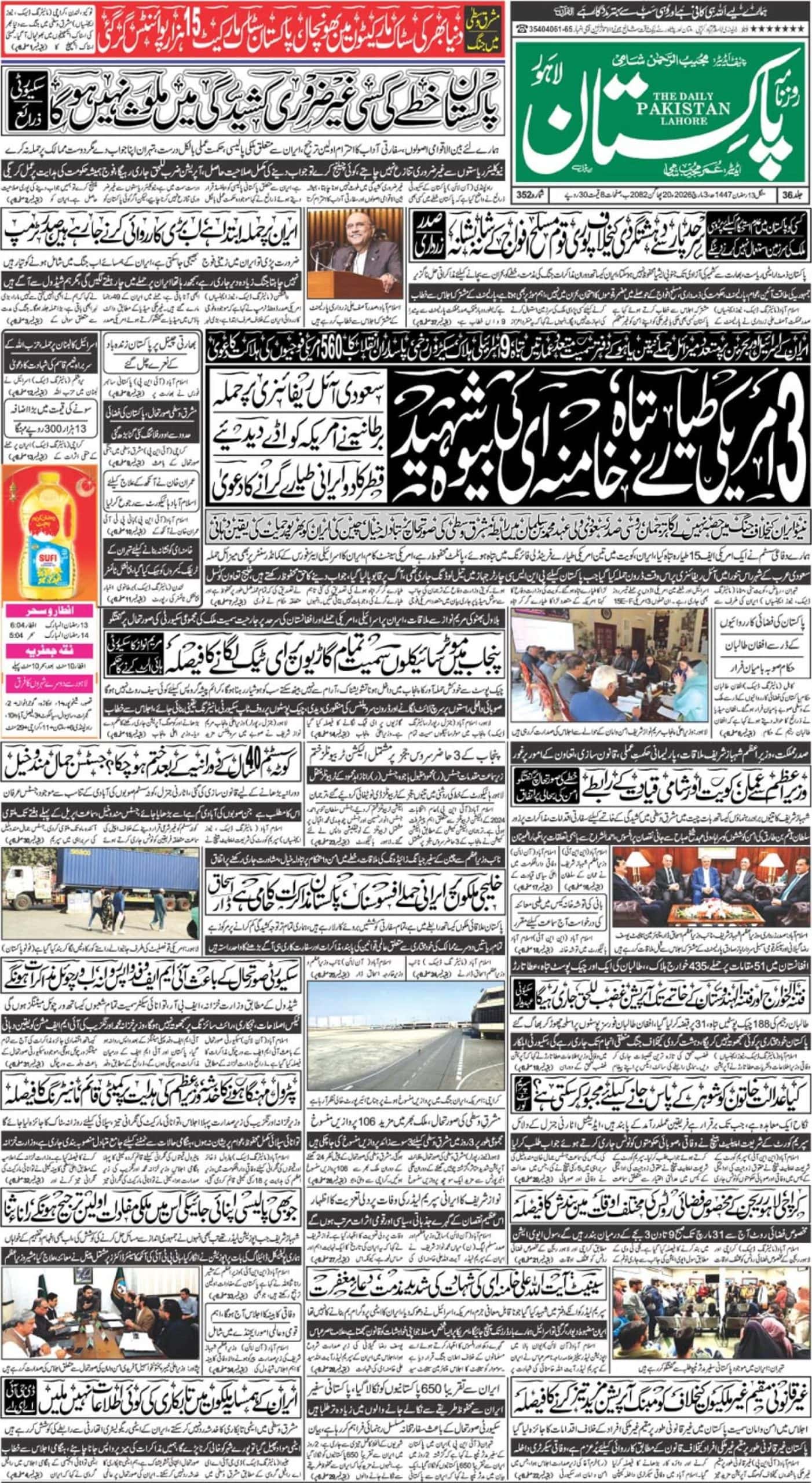ISLAMABAD – Finance Minister Ishaq Dar on Friday presented the federal budget for fiscal year 2023-24 with a total outlay of Rs14,460 billion in the National Assembly, projecting 3.5% GDP growth for the next year.
The draft of the budget with over Rs6 trillion deficit was first presented in the cabinet for the final nod. The NA session began with recitation of the Holy Quran followed by the national anthem. Prime Minister Shehbaz Sharif was also present in the assembly.
In his opening remarks, the finance minster recalled the achievements of the PML-N governments under former premier Nawaz Sharif. He lashed out at the PTI government, saying its “non-serious” attitude caused deterioration of the national economy. “Public is fully aware now that current inflation and economic crisis is only due to the PTI”.
He said the coalition government took tough decisions to put the economy on track by putting their political future at stake. He touched the May 9 incidents, saying all elements involved in the violence should be brought to justice.
Budget 2023-24
- GDP growth rate target set at 3.5%
- IT sector given status of SME
- Tax withdrawn on agriculture equipment
- No tax on industrial sector in fiscal year 2023-24
- Export target set as $30 billion
- Rs1804 billion allocated for defence
- 35% increase in salaries of govt employees for Grade 1 to 16
- 30% increase for Grade 17 to 22 officers
- 17.5% increase in pensions
- Minimum wages set at Rs32,000
He said the government has met all conditions laid forth by the IMF for revival of the loan programme.
Salient Features of Budget 2023-24
- Size: 14.46 trillion rupees
- 9.2 trillion revenue target
- 9.50 billions for PSDP
- 1.8 trillion for defense
- Salaries up by 35%
- Pensions up by 17.5%
- Tax exemption for IT
- Sale of new 4G licences in FY23
- 3.5% FED reduced for telecom
- 15% duty on import of tractors
- 10% WH tax on bonus shares
- Heath insurance for journalists
- 17 billions rs for K4 Karachi
Tax Relief for Hybrid Vehicles
Customs tax (CD) on the import of hybrid electric vehicles (HEVs) in completely built-up (CBU) form has been decreased to 1%, according to the budget papers.
Additionally, the CD for the import of HEVs that are completely knocked down (CKD) units has been decreased. According to the document, the CD for the import of HEV CKDs is 4% while the CD for the import of PHEV CKDs is 3%. This ought to have an effect on hybrid vehicle costs in the Pakistani market and motivate a number of new businesses to participate in the hybrid car industry there.
On the other hand, the duty and taxes levied on vehicles above 1300 cc which are manufactured in Asia are being removed. Apart from this, it has been proposed to reduce the rate of customs duty on import of non-locally manufactured commercial vehicles in the form of CKD from 10% to 5%.
Remittances
The finance minister termed remittances a key source of foreign exchange reserves, representing 90% of the country’s exports. The government has proposed several steps to boost the remittances.
He said the 2% final tax on the purchase of immovable property will be abolished, adding that a “diamond card” will be issued to Pakistanis sending over $50,000 — through which they will be able to get license for one non-prohibited bore weapon, gratis passport, preferential access to Pakistani embassies and consulates, fast-track immigration at Pakistani airports and special prizes through draws.
Education
For the Higher Education Commission (HEC), the federal government has set aside Rs65 billion under the current expenditure, while Rs70 billion have been allocated for the development expenditure, the finance minister said. He said Pakistan Endowment Fund would be established to provide financial aid to the education sector, for which Rs5 billion have been set aside in the budget.
He said the federal government would distribute 100,000 laptops to deserving students on merit. For this, the cabinet has proposed to allocate Rs10 billion.
IT and Freelancers
The finance minister proposed reduction in income tax for freelancers to 0.25% till 2026, adding that a freelancer will be exempted from tax returns if he brings $24,000 annually. He said companies will be able to import hardware, software upto $50,000 without tax, adding that sales tax on IT services which stands at 15% will be brought down to 5%.
Tax Collections
The finance minister said Rs7,200 billion are expected to be collected as taxes, adding the share of provinces would be Rs4,129 billion during the next fiscal year. He said FBR is likely to collect Rs1,618 billions as non-tax revenue, and federal tax collection will be Rs4,689, while total expenditure is projected at Rs11,090 billion.
Salaries and Pensions
The finance minister said 35% increase has been proposed in salaries of employees of Grade 1 to 16 while 35% surge has been proposed for officers of Grade 17 and above. He said the government has proposed 17.5% increase in pension of the retired government employees. However, the minimum wages has been fixed at Rs32,000 for labourers.
Construction Sector
Calling the construction sector vital part of the economic output, Dar said the 10% or Rs5 million, whatever amount is less, will be charged on income of the construction enterprise.
Those individuals who will construct their own property will be given a 10% tax credit or Rs5 million for the next three years as part of the concessions to the construction sector. He said Real Estate Investment Trust (REIT)-related tax exemptions have been extended till June 30, 2024.
Cabinet Okays Budget 2023-24
Ahead of the NA session, the federal cabinet approved the budget for the next fiscal year amid economic challenges. It has approved to set aside Rs86.4 billion for power sector and Rs263.6 billion for trasport and communication.
It has approved the allocation to the tune of Rs1150 billion for federal development projects while Rs491 billion has been approved for the infrastructure development. It has given nod for allocation of Rs1108 billion for defence expenditure.
The government would set aside over Rs99 billion for water reserviours while Rs81.9 billion has been allocated for education sector and higher education.
The cabinet has approved the finance ministry’s proposal to increase salaries and pensions of government employees by 20%.
Pakistan plans to relax annual currency caps for inbound passengers

